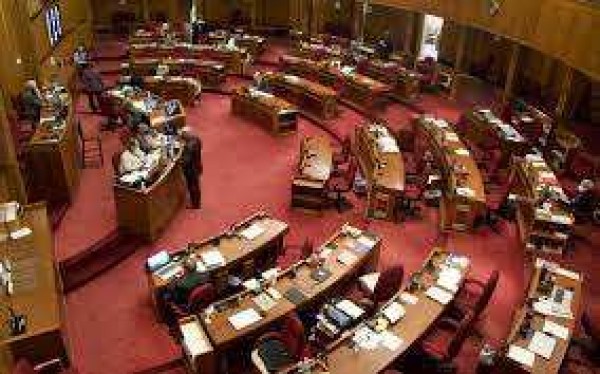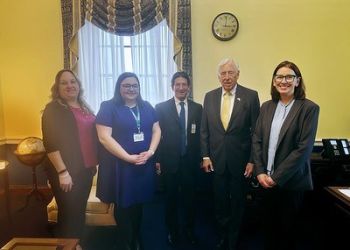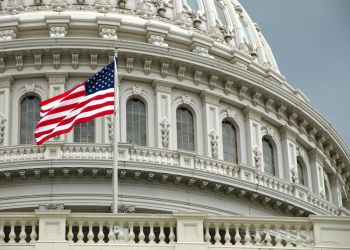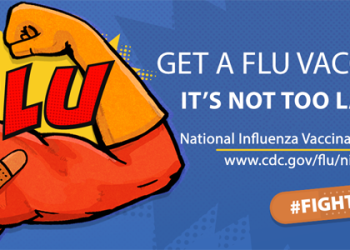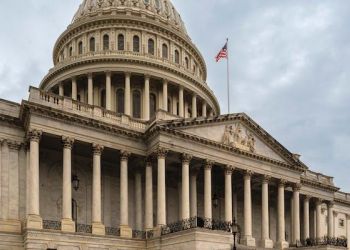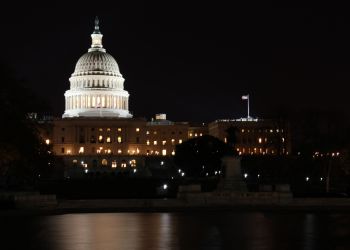“In recent months, at least 15 state legislatures have passed or are considering measures to limit severely the legal authority of public health agencies, and other states may consider such legislation in the future, hindering the ability of health departments to do their jobs and putting wide swaths of the public at risk.”
—Proposed legislation poses an immediate threat to life and health and has long-term ramifications —
Washington, DC, May 28, 2021 —On Tuesday, the National Association of County and City Health Officials (NACCHO) representing the country’s nearly 3,000 local health departments and The Network for Public Health Law released a new report, entitled Proposed Limits on Public Health Authority: Dangerous for Public Health.
The report highlights state-level efforts to roll back or severely limit the authority of public health agencies, which will impact their ability to protect the public from serious illness, injury, and death both during and long after the COVID-19 pandemic. In recent months, at least 15 state legislatures have passed or are considering measures to limit severely the legal authority of public health agencies, and other states may consider such legislation in the future, hindering the ability of health departments to do their jobs and putting wide swaths of the public at risk.
The report provides examples of laws that would:
- Prohibit requiring masks in any situation, including cases of active tuberculosis. In North Dakota, a new law would remove the authority of the state health office to require face masks or covering.
- Block the closure of businesses necessary to prevent the spread of disease, allowing for super spreader venues. In Kansas, a new law removes the Governor’s ability to close businesses during a public health emergency.
- Ban the use of quarantine. In Montana, a new law prohibits local board of health emergency orders from separating those individuals who are not yet ill, but reasonably believed to be infected or exposed. Prohibition of quarantine orders undermines the basis of infection control and would make it impossible to stop outbreaks of deadly diseases that are spread by individuals who are not yet symptomatic.
- Block state hospitals and universities from requiring vaccinations for employees and students in dormitories to protect state residents. In Arizona, a new law prohibits requirements that a person receive a vaccination, except in K-12 school settings and creates criminal penalties for violating the ban.
- Strip local governments, including local health agencies, of the ability to respond to local conditions in an emergency. In Texas, a proposed bill would preempt local emergency action to the extent that it is inconsistent with orders of the Governor or state health department.
- Set arbitrary time limit for emergency orders. In Florida, a new law provides for automatic expiration of local orders after seven days with a majority vote of the local governing body required for an extension, limits the total duration of local orders to 42 days, and prevents the issuance of a substantially similar order for the same emergency if a previous order has expired.
- Give unilateral power to legislatures to stop public health actions. In Ohio, a new law will allow the legislature alone to rescind any order or action by the state health department or director of health to control or spread the spread of contagious or infectious disease. The Governor, who vetoed the law, issued a statement saying that the law “strikes at the heart of local health departments’ ability to move quickly to protect the public from the most serious emergencies Ohio could face.” The Governor’s veto was overridden by the legislature and the law will take effect June 23, 2021.
- Legislation to block reasonable public health measures like mask wearing, social distancing, and quarantine poses an immediate threat to life and health.
- Legislation to stop expert public health agencies from leading the response to health emergencies creates unforeseen, serious risks to life and health.
- Legislation that strips authority from public health agencies and the executive branch infringes on the constitutional separation of powers and undermines effective government response.
- These laws could make it harder to advance health equity during a pandemic that has disproportionately sickened and killed Black, Hispanic and Latino, and Indigenous Americans.
The report reaches four conclusions:
- Legislation to block reasonable public health measures like mask wearing, social distancing, and quarantine poses an immediate threat to life and health.
- Legislation to stop expert public health agencies from leading the response to health emergencies creates unforeseen, serious risks to life and health.
- Legislation that strips authority from public health agencies and the executive branch infringes on the constitutional separation of powers and undermines effective government response.
- These laws could make it harder to advance health equity during a pandemic that has disproportionately sickened and killed Black, Hispanic and Latino, and Indigenous Americans.
###
About NACCHO
The National Association of County and City Health Officials (NACCHO) represents the nation’s nearly 3,000 local governmental health departments. These city, county, metropolitan, district, and tribal departments work every day to protect and promote health and well-being for all people in their communities. For more information about NACCHO, please visit www.naccho.org.
About the Network for Public Health Law
The Network provides visionary leadership in the use of law to promote, protect and improve health and advance health equity. The Network works with local, tribal, state and federal public health officials and practitioners, as well as attorneys, policymakers, advocates, and community organizations, providing information, resources, consultation and training. Visit networkforphl.org.
